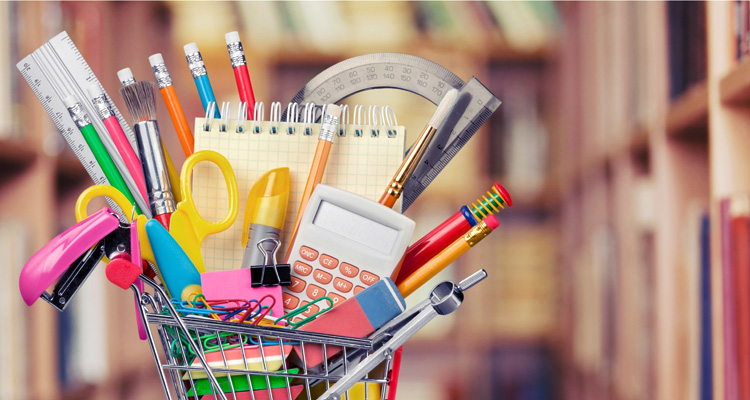When all the back-to-school supplies start popping up in stores, it’s hard to believe the school year is already about to begin. What is also very hard to believe is the long list of school supplies needed and just how very specific these lists are. “Disappearing Elmer’s glue sticks” and “Dixon Ticonderoga #2 pre-sharpened pencils”—how about just saying glue sticks and pencils?
Believe it or not, there are very real and valid reasons behind every peculiar and distinctive school supply on that list. Teachers are in the trenches every day with your students, and they have come to realize over the years what school supplies are helpful and which ones just cause frustrations and distractions.
To help shed some light for all the parents looking at these back-to-school supply lists and contemplating filling your cart with the cheaper or “more fun” supplies, here is a list of ten school supplies that teachers really don’t want you to buy.
1) Personal Pencil Sharpeners
Overwhelmingly, teachers don’t want your student bringing in those tiny personal pencil sharpeners. These do nothing but create messes and extra noise. There is a pencil sharpener in the classroom, so just plan on using that.
2) Backpacks on Wheels
For younger children, there should not be enough weight in their backpacks to merit the need for backpacks on wheels. The stiffness that comes from the wheels makes them difficult for hanging or placing on the backs of chairs, not to mention all the poor run-over toes!
3) Plastic Pencil Boxes
These have a tendency to fall and scatter all over the place, so stick with the zipper pouches. Plus, these larger pencil boxes take up more room on the desk and accumulate extra junk (meaning distractions) throughout the year.
4) Off-Brands
Cheaper supplies are a real temptation; but if your teacher has requested a specific brand in an item, it’s for a good reason. Many off-brand crayons and markers (and other supplies) do not work nearly as well as their name-brand counterparts. Trust your teacher’s experience in this and stay alert to sales or tax-free weekends in order to affordably purchase the name-brands.
5) Rulers
Unless specifically asked for by the teacher, avoid having your child bring in rulers to the classroom. As you can imagine, rulers can very quickly become swords or light-sabers and are just asking for someone to get hurt.
6) Oversize Binders
Yes, those organizational binders that fit an entire student’s life in one place are very appealing. However, these oftentimes do not fit on desks and just create an impossibly large monstrosity that gets in the way of learning. Individual binders for each class, per the school supply list, are a more functional approach to organizing homework and notes.
7) Mechanical Pencils
For elementary ages especially, mechanical pencils are more of a hindrance than a help. The leads break very easily or simply fall out. The convenience of not having to sharpen the pencil is not worth its disadvantages for younger students. Pre-sharpened pencils are preferred, and the patterned foil pencils should be avoided because they damage the pencil sharpeners.
8) Colored Pens
Kids love bright colors, so it is understandable that colored pens can make classwork or homework more fun. However, many of these colors are very difficult for teachers to read when grading work, so limit those for personal notes or use at home.
9) “Toy” Supplies
To be marketable for children, many school supplies are designed to be fun instead of functional. Whether it be scented markers, pencil toppers, or patterned tape—if your child likes to play with it, leave it at home. It is difficult enough to maintain the attention of students all day, so any items (including shoes and clothing) that may prove to be a disturbance should not be brought into the classroom.
10) Fake Glue
If you have ever been in a classroom full of excited kids using glue, you can understand the importance of having glue that works correctly. If the teacher has requested glue sticks, don’t skimp. For liquid glue, it is important to have bottles that don’t dry up or leak. Trust the specific glue listed on the school supply list and go with it!
Teachers have an enormous responsibility in educating our students. For their willingness to take on that challenge, all parents should be extremely grateful. If avoiding these ten items makes the lives of teachers a little easier and our kids able to learn in a more productive environment, then why not cross them off the list?
For students enrolled in online schools, however, many of the supplies mentioned above will not be a concern. If you are still exploring options for the new school year, check out Stride, K12 schooling online options.
This article was originally published in 2016 and has been revised and republished.
Note: The references to teachers’ objections to the school supplies mentioned above are based on comments gathered from a Facebook community group of teachers as well as multiple websites.


























































